Jun
13
WHAT YOU DON’T TALK ABOUT
Filed Under Combat PTSD, PTSD, Tears of a Warrior, Trauma, Treating PTSD, Veterans, War | Comments Off on WHAT YOU DON’T TALK ABOUT
by Janet J. Seahorn, Ph.D
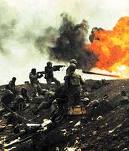
It was something I was not going to do – view the HBO special War Torn.
I tried watching it almost two months ago but didn’t last ten minutes before I had to turn off the DVD. It had too many reminders of suffering associated with the aftermath of combat. Yet, last night I decided to see what it had to say about PTSD, since this has been our mission for the last twelve years – including research & writing.
Throughout the movie there seemed to be a very powerful, recurring theme, a theme of silence. Silence made the veteran a prisoner of his/her own memories. It did not matter what branch of the military a person served – Army, Navy, Marines, Air Force, National Guard…
The role one played during combat was quite expansive, overwhelming individuals who served in all facets of war. From the front lines of combat, to medics, nurses, body baggers, and any person who had participated in the tensions of war. What was similar, however, was the manner in which the experiences were seared on the mind, body, and spirit. This mark of trauma often left the individual with a sense of hopelessness, apprehension, torment, and sometimes shame.
Then, to add insult to injury, when the vet came home… home to a place that he/she would feel safe and normal, returning to civilian life sometimes added greater stress. Many family members and friends simply wanted the vet to be like he was before he left for war. Become normal again.
Perhaps these words might offer some understanding of what isn’t talked about and isn’t said when a war veteran returns home.
THINGS YOU DON‘T TALK ABOUT
By Janet J. Seahorn, Ph.D.
What don’t you talk about,
You survivors of war?
You, who are suppose to be brave,
To be fearless and bold.
You, who have witnessed the best of mankind,
And the worst.
You, who daily endured death;
Who lived with the unknown
The woundedness of others
And the scars within yourself.
What don’t you talk about,
You warriors of battles recent and old?
The panic attacks that grip your throat,
The night sweats from vivid dreams;
Anxieties that propel you to a universe
That seems out of control.
Anger unprovoked and dangerously destructive.
The self-medication… attempts to silence
The voices and erase the gory scenes.
What don’t you talk about
You, who cry with Silent Screams?
You, who cannot seem to find your words,
For words are too simple, too clean
To describe your distress
To others who have no concept of war.
For what you don’t talk about
Your brother and sister warriors understand.
They have been to that place of darkness.
They know – and in that knowing
They are there to walk beside you
If only in spirit.
Perhaps these fellow casualties
Make talk a bit less necessary.
Jun
6
I AM
Filed Under Civilian life, Combat PTSD, Life, Love, Peace, PTSD, Tears of a Warrior, Treating PTSD, Veterans | Comments Off on I AM
by Janet J. Seahorn, Ph.D
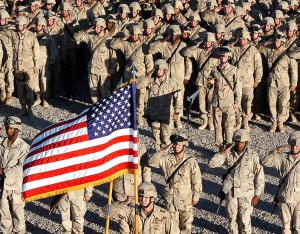
For many of our military men and women who return from combat there is a burning question; a question that asks, “Who am I?” Who am I now that I have seen so much, done so much, and heard the despair of so many? For some there may be a feeling of unworthiness, a gnawing numbness of pain. They seek answers that seem to elude them; answers hidden somewhere between the battle fields and the present.
Every person wants to be validated in the world: to be seen, to be heard, to be felt. Returning from war often leaves a person with a sense of invisibility. A feeling that adds to the question, Who am I … this other person who wanders a world that once was so familiar now feels like a drifter in a land that may not seem recognizable.
Know this one simple truth, You are worthy of love. You are worthy of goodness. You are worthy of a life of joy and personal fulfillment. The trick is not that others view you as worthy. You must believe this for yourself. “You are responsible for your life”. And only You can create and live such a life. You alone must believe that you are worthy to live a good life and a life of meaning.
Combat can take one’s sense of self, but it does not take away one’s need to be a part of something, some mission, some worthy cause. The heartbreaking reality for many veterans is returning from battle with a frame of mind of being untrained to live in civilian society. You will need to work hard to find your path in this world after combat. No one can do this for you. It is a journey each individual will need to travel and seek out.
Some doubt they are up to the challenge. This is purely self deception. If you could be trained to perform all of the incredible feats of a skilled warrior, you certainly have the strength, intelligence and willpower to succeed in becoming your very best “I AM”. The gift has always been yours. It was bestowed on you at birth. The outside world may work hard to convince you otherwise. Some days it may be tempting to give up the search. But carry on. In your hands lies the power to choose.
Choose to accept your very best I AM.
May
28
THANK YOU FOR SERVING
Filed Under American Patriotism, Dogs, Events, Memorial Day, PTSD, PTSD treatment, Tears of a Warrior, Veterans, War, Wisdom | Comments Off on THANK YOU FOR SERVING
by Janet J. Seahorn, Ph.D
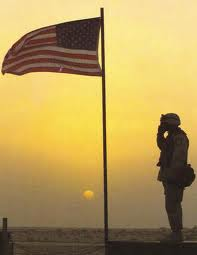
Such a simple phrase stated on too few occasions by too few individuals.
During our travels we get opportunities to visit some special places that offer discounts or free admission to veterans. Most of the time people are pretty gracious. Then there are those situations where the “keeper of the gate” are, in my opinion, just plain ignorant on how to treat veterans.
We have heard stories over and over again on this topic. Some are quite sad, while others are pretty darn funny. On one recent occasion we were visiting a National Park. Tony was asked to show the gatekeeper his driver’s license along with other proof of identity. He had already given her his National Park’s Access Pass for Disabled Vets along with his VA Identification card with picture and signature. Animals with embedded ID’s aren’t scrutinized as rigidly. After all the ID confirmations, she could clearly see he had more than provided adequate identification, yet she still insisted on seeing his driver’s license and two other forms of identification with his signature on it.

This scenario that was absurdly comical. Yet, another part was perfectly annoying. After we jumped through the “gate keeper’s” hoops, we moved forward. Only later after driving several miles down the road did I think of the perfect reply. The next time (and there will be a next time) we’re asked to wiggle through silly bureaucratic hoops, when they are finished with their requests, I am going to respond kindly with the following:
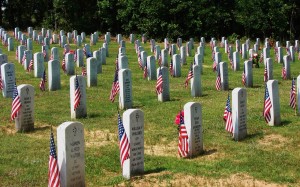
You really meant to say: “Welcome Home and Thank You for Your Service.”
I must admit it will be a bit amusing to see the reaction.
Memorial Day is a time to give recognition and say a prayer of gratitude for all who have paid the supreme sacrifice for serving their country. We should never forget.
 All our military personnel and veterans are our quiet role models and noble heroes.
All our military personnel and veterans are our quiet role models and noble heroes.
These deserve our respect.
FREEDOM IS NOT FREE.
May
19
TOUCHED BY COURAGE
Filed Under Brain Injury, Combat PTSD, Events, Family, Giving, Life, Love, PTSD, TBI & PTSD, Tears of a Warrior, Trauma, Veterans, Wisdom | Comments Off on TOUCHED BY COURAGE
by Janet J. Seahorn, Ph.D
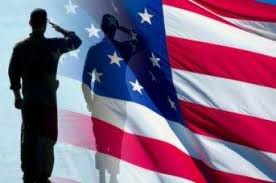
A few weeks ago, Tony and I spent several days in the Grand Strand area of Myrtle Beach, South Carolina.
It was Military Appreciation Week.
Due to the special invitation of Retired Army Officer Sinclair Swan, we had the privilege of working with two local groups of military veterans, their spouses and family members.
During the day we met with several group members and their spouses. It was an amazing opportunity to not just speak to the individuals in attendance, but to listen and hear their stories as well. Each account reminded us of the enormous amount of courage it takes to get up each day, live it as best one can, and give back to others.
Two of the veterans have adult children who experienced traumatic car accidents which left them with severe head injuries. These vets are now the primary care givers. Not only have they endured their own trauma; now they must bear the suffering of their children. Several are challenged by serious health issues for them and/or their spouses.
Yet, they continue with great effort and fortitude to move forward. It is a humbling gift to have others shares their trauma and heartbreaks.
Contrary to some public perspective, most of these vets have lived and are living successful and productive lives. In spite of their demons, they have deliberately chosen to not let the past destroy the future. They have elected to make a difference for themselves, their families, their communities. Sinclair Swan meets every Saturday with vets who need help in filling out government forms to obtain services. Each has made significant contributions to serving others.
One individual wrote a special poem many years ago. Upon returning from Vietnam he described how he became homeless, sleeping in parks, and getting his “fixes” when needed. Then, one day, another homeless friend suggested they go to a church soup kitchen for a meal. It was there that a miracle occurred and his life changed. He got his faith back, his spirit, and eventually his life. At that time he wrote a poem which he has allowed us to share with you.
A Poem
By William Huffaker
If I only had one wish to make,
but that wish would surely come true.
I’d wish that I would be given the light
to turn the darkest sky into blue.
Now to you this may sound
like my mythical dreams
have blurred my vision
so that this only seems
to be an illusion
of hopeful abound,
and that my wish
I’ve not really found.
But I’ve found it I tell you.
As I’ve sought it in truth.
And I know now this answers’
been here since my youth.
But I just couldn’t see
through the clouds in my mind.
Through delusions of grandeur
I just couldn’t find.
This fabulous dream
that just had to be,
waiting and knowing,
someday that I’d see.
And even though skies
still sometimes turn black.
And visions of grandeur
still sometimes come back.
I know that there’s light
in the darkest of night.
And the tenderest loves
never far from my sight.
And now that my dream
has become something true.
If I had one more wish,
I would wish it for you.
Apr
24
LIVING INSIDE OURSELVES
Filed Under Combat PTSD, Life, Peace, PTSD, Tears of a Warrior, Trauma, Treating PTSD, Veterans | Comments Off on LIVING INSIDE OURSELVES
by Janet J. Seahorn, Ph.D

We reside within our own wondrous environment, within ourselves, and wander about the internal hills and valleys everyday. If we are lucky and have lived a full life, the landscape of our inner country is filled with incredible diversity.
Mountains and valleys only have depth based on the extent of our experiences. The brilliant hues of colors cannot be painted on an empty canvas. Nope, such vividness is achieved through a great many life events: joy, grief, humility, arrogance, chaos, serenity… all mixed throughout the years.
Yet, through all our trials and triumphs, with a bit of luck, our inner artist refuses to put down the paintbrush. Each day offers elements to add to the internal country; an element that increases the vastness of the spirit. Within ourselves we wander with purpose and courage. Trauma takes a toll which only hope can overcome.
We become our best selves not because we lived a safe, comfortable life, but because we have fully lived. There is a huge difference between a life of ease and one of worth. The first took little effort; the latter required a deep sense of duty, sacrifice, relentless perseverance, and sometimes tears. All of these make a life of worth a special gift to the world. A gift that lives far beyond our short existence.
Which life have your lived so far. Which life are you living now? What would your canvas look like? Certainly, like any remarkable work of art, it would have its dark contrasts; yet, I hope it would also contain sweeps of light, touches of brilliant colors, and areas of tender hues which embrace a sense of peace and serenity.
Mar
31
STEALING SPIRITS
Filed Under Combat PTSD, Human Rights, PTSD, Tears of a Warrior, Wisdom | Comments Off on STEALING SPIRITS
by Janet J. Seahorn, Ph.D

Last week we did a ten day road trip through Colorado, New Mexico, Arizona, and Utah. One place we visited was Monument Valley, a beautiful, hauntingly desolate landscape of red sandstone formations rising up from the thirsty valley floor. This region is a sacred Indian worship site belonging to the Dine tribe. Many sacred locations remain private for ceremonies held by Navajo tribes along the Arizona & Utah border.
Although the valley has been open to the public for decades, I still felt reluctant to enter its sacred domain. It felt somehow like I was stealing a small part of the land’s spirit by just being there. This ground is special to the Navajo Nation, a culture that outsiders can never fully understand or appreciate. The beauty of the land itself is breathtaking. The ancient spirits rustle in the wind.
John Ford was the first major director to film his movies in the Monument Valley area. The film, Stagecoach, starring John Wayne won an academy award. Many more successful movies followed, all of which brought money and jobs along with more people to the valley. The many films with their striking scenery contributed to a rise in visitors who wanted to view the landscape first hand.
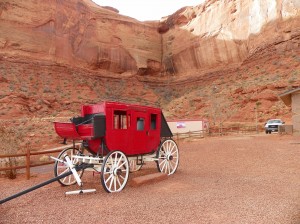
The swarms of tourists came like bees flocking to a new food supply. Only these human insects did not make honey, or contribute to the well-being of the people beyond their money. This is what made me begin thinking again of PTSD. So many common experiences lead me to reflect again on PTSD and its relationship to man’s survival. It is deceptively easy to steal a land or a human spirit. It is a simple recipe – simply take his land; take his dignity; take his humanity, and take his hope. Take his happy memories and replace them with tears and broken lives. By all of the taking, eventually we take his reason for living; we leave behind mangled hearts and broken spirits.
Stealing Spirits is a tragic feat. Preserving them is as necessary as breathing. Each heartbeat is a promise of a new beginning, a new hope, a new and fresh tomorrow – for Spirits are the keepers of our past, our present and our future contributions. They can be shared and nurtured, but they must never be stolen.

Mar
17
AGING WITH TRAUMA
Filed Under Aging, Healing Waters, Life, PTSD, Tears of a Warrior, Trauma | Comments Off on AGING WITH TRAUMA
by Janet J. Seahorn, Ph.D
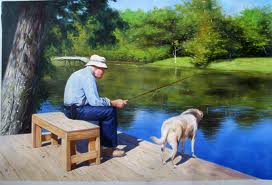
Yikes! When we read about the Golden Years they don’t always seem so wonderful. Most of you have read that old saying, “aging is not for sissies”, and that cliché was written for the average person who has a lighter set of luggage to carry. For veterans and their families, many don’t carry bags of crap; they have a huge trunk of it, and it doesn’t seem to get lighter with time.
For almost two years I have resisted writing this particular blog. Why? Because it scares the #### out of me. I admit it; I am a sissy for growing old. Not because I am afraid of needing an expensive face lift, or having to wear fancy old people diapers. OK, those things do concern me, but they aren’t nearly as distressing as the more intrusive symptoms of age. Now, add the effects of living a lifetime suffering with PTSD or living with someone with PTSD and the image gets uglier. Even strong, rose colored glasses haven’t been able to calm my apprehension. Therefore, it is time I write what I know, and have known for a very long time. Aging with trauma is not for fragile minds or bodies.
Here are some facts that have been around for a long time regarding aging and PTSD.
- People with type 2 diabetes who also suffer with PTSD face a 36% higher risk of going blind or developing kidney disease (American Diabetes Association).
- Heart problems and high blood pressure are more common — DUH!
- Mood disorders such as depression are more prevalent if one has not sought help. Double Duh!
- Depression increases the risk of heart attack by 25% (VFW, March 2011)
- Alzheimer and/or dementia increases.
We have long known that PTSD affects the body and the brain, so it is not a big aha that any of these conditions gets worse with age since the body’s immune system is weakened and not as robust as when we are young. In giving all of these amusing statistics, I can’t stop without putting in some actions that will prolong the drought of age. Again, we all know these but sometimes do little to practice what know. Call it lack of well-power or procrastination, the two twins of sin.
- 1. Exercise everyday. This promotes blood flow to the brain which is pretty darn important for keeping the feeble thinking and crippled rascals at bay. It also increases muscle mass and strengthens bones keeping us from being in a wheel-chair instead of on a ski lift.
- 2. Watch what you eat… “What’s on your plate determines your fate.” Damn, I love a warm, gooey chocolate donut, a double scoop of ice cream, or a basket of salty French fires, and they seem to love me, my thighs and clotted arteries just as much.
- 3. Drink lots of water. It is the best purifier of the body and removes all that excess material, especially sodium that helps lower heart pressure.
- 4. Practice deep breathing and meditation. Lots of research shows how these actions promote a sense of well-being… only problem is my lack of concentration. Practice makes this better and really does improve the entire mind/body.
- 5. Add more fiber to your diet. J I don’t think I need to go into detail with this one, but fiber literally will help lighten our trunks of crap.
- 6. Get plenty of sleep. Nothing can take the place of rest for promoting good health.
- 7. At least I can still have my lattes and tea… at least four hours before bedtime.
- 8. Oh, and don’t forget laughter, it is the best of all exercises for our mind, our bodies, and our hearts.
Aging is inevitable, but aging with grace and good health will take courage, will-power, and making good personal choices.
Mar
9
UNCOVER THE SUN
Filed Under Combat PTSD, PTSD, PTSD treatment, Tears of a Warrior, Today's War, Treating PTSD | Comments Off on UNCOVER THE SUN
by Janet J. Seahorn, Ph.D

There are so many ways to experience trauma in the world. Combat is just one, but it is one where the impact keeps on giving and giving. For many whose painful experiences occurred once or twice, many seem to be able to get up in the morning and feel grateful for the opportunity to have a fresh new start. The sun shines brighter and the colors of the world are more intense, even if some nights are seemingly unbearable.
The difference between a one time experience and multiple traumatic occurrences is the cumulative effect. The more often an individual faces harrowing life events, the more likely the brain is going to be influenced by those events. Because the brain is sculpted by experience, everything good or bad can make a difference.
We become who we are due to our genetic foundations and our environment. If that environment is nurturing, safe and challenging in a positive way, we have a greater chance to develop into self-confident, cheerful people. If, however, that environment is saturated with violent, unpredictable and dangerous circumstances the brain molds itself into a survival organism in order to hopefully sustain the trauma. The important thing to remember, however, is the age when a trauma occurs. Earlier is not always better.
We know the brain is not fully developed until the mid twenties (especially in males). So what do you think multiple combat deployments do to a developing brain? For many young men and women the outcome is pretty darn complicated. Connections within the brain are changed. Neurotransmitters, those chemicals in the brain that allow us to feel pleasure, prepare for fight or flight, suffer with depression, and other human experiences are changed. The physical organism that controls our behavior is changed. Trauma is serious business with serious effects for many.
For warriors returning from combat, the world is not as bright and welcoming as it was before war. Sense of identity is changed… you leave as a somewhat naive youngster and return as an adult aged beyond your years. PTSD is like having a gray veil placed over the sun. Sure it still shines. Yes, you can feel the warmth of its rays.
Yet, nothing is the same as before you left. Healing from trauma can be the unveiling of the sun. The way to remove that shroud or at least make it lighter is to seek help as soon as possible. You have the strength to Uncover the Sun. More importantly, you deserve to have the full brightness of its rays lighting your days and warming your heart.
Feb
15
WICKED PROBLEMS
Filed Under Combat PTSD, PTSD, PTSD treatment, Tears of a Warrior, Trauma, Treating PTSD, War | Comments Off on WICKED PROBLEMS
by Janet J. Seahorn, Ph.D
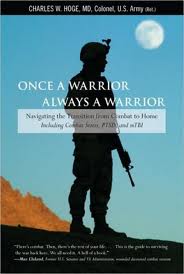
No doubt about it, PTSD is a very Wicked Problem. Wicked Problems, by definition, are those dilemmas that cannot be solved easily by using a typical approach. Anyone living with traumatic stress, especially those pressures caused by combat, will attest to the challenges of trying to solve the predicament of moving through his/her life carrying the memories and phantoms of war. If the solution was easy, it would have been found centuries ago. Yet, here we are today, in 2011, and the Wicked Problem still exists.
One of the Wicked Problems of trauma is surviving the depression that can be a part of the conflict. How does a person live with long-term depression that often becomes the new normal after battle? Constance Gibbons, one of our readers, wrote last week and shared how depression has been the new normal for many vets including her husband. After years of having it a part of their daily being, it becomes their after war identity. She stated: Another interesting aspect from those of us observers – spouses, et al – was that universally we noted the levels of sort of a baseline enthusiasm, whereas, the vet thought they were quite fine.
She explained further: As you continue to think of ‘depression’ as it may be portrayed by the vet, maybe think of a sense of resolution, unknowing acceptance, somewhere in a lower zonal level (between overconfidence and fear) from the years of living on the cusp of life and death, at a level of continuing risk so great that without the impact of the continuing penetration, after, into youthful vulnerability, it appears to those of us in observation to be baseline depression…where it is not to the vet; just an absence of heightened stimulation. Wow, now how would anyone solve such a Problem?
Veterans carry many Wicked Problems – ghosts of death and shocks of battle, memories that make if difficult to stay grounded in every day activities, and struggles to avoid the sleepless nights where staying awake is one way to keep the dreams of foreign battles from returning. New therapies and medications have helped lower the impact of PTSD but it has not solved the Problem. I read many blogs and articles relating combat PTSD to the trauma that the average person might experience. Things such as car accidents, rape, assault… all which are terrible and difficult to cope. Yet, these are hard to compare to combat where trauma occurs every day, often numerous times in a day. One of the biggest differences is besides being the prey, in combat you must also become the predator. Instead of being involved in one brutal injury or death, you may experience many.
Fighting the Wicked Problems of war takes work. It requires listening to your gut feelings as well as how others around you perceive your behaviors. The good fight involves muffling the loud voices in the head long enough to examine realistic solutions. Perhaps there will be no absolute solution to PTSD, but every day there are warriors who conquer their demons and live full and meaningful lives. Wicked Problem you may remain, but you will not take more of a warrior’s life than you already stole. You will not win this internal war, even if you succeed in taking an emotional battle now and then. You see, Wicked PTSD Problem, in spite of your persistent, you are no match for the courage and willpower of a WARRIOR.
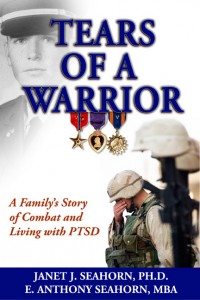
Jan
26
HIDDEN IN PLAIN SIGHT
Filed Under Combat PTSD, Life, Peace, PTSD, TBI & PTSD, Tears of a Warrior, Trauma, War, Wisdom | Comments Off on HIDDEN IN PLAIN SIGHT
by Janet J. Seahorn, Ph.D
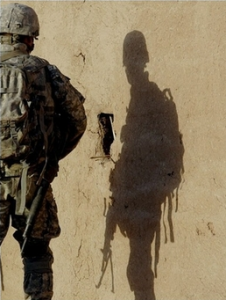
There is a phrase that one hears every now and then, Hidden in Plain Sight. Four simple words that eloquently reveal the complexity of the impact of trauma on one’s mind, heart, and soul. We see the person; we look at the eyes, the body language, the being’s form. The suffering is present in plain sight for all to witness. Yet, few do, lacking the keen observational heart skills required to notice anguish.
There are days I wish I didn’t see it – the faces of children battered by abuse and neglect; the adolescent’s depressive absorption into the ugly world of alcohol and drugs, and the veiled, but ever present ghosts of veterans, young and old carrying their memories of war. They haunt me as the world moves around their pain because it is hidden in plain sight.
Much like ‘Don’t Ask, Don’t Tell’, we are a nation that prefers to maintain our equilibrium at all cost. We tend to be uncomfortable with sorrow even when it stands knocking at our front door asking only for recognition and a bit of compassion.
We say we are a nation of empathy, yet often dismiss the humanity that exists in every person, especially those with whom we don’t agree. We argue we are intelligent, proficient thinkers, yet fight rigorously to disqualify any information that does not align with our personal paradigms/beliefs, whether true or misleading, without accurate evidence or data.
The answers to our current and future problems are available, but for too many they are hidden in plain sight. It will take incredible courage to look into our own minds and hearts searching for what is right and true. It will take courage and honest self-reflection to heal the hidden wounds of the wounded, but it can be done. What lies before us does not need to consume us with fear or apprehension. When confronted, trauma and pain can be overcome and no longer hidden or carried alone.
Light and sunshine are incredible healers.

